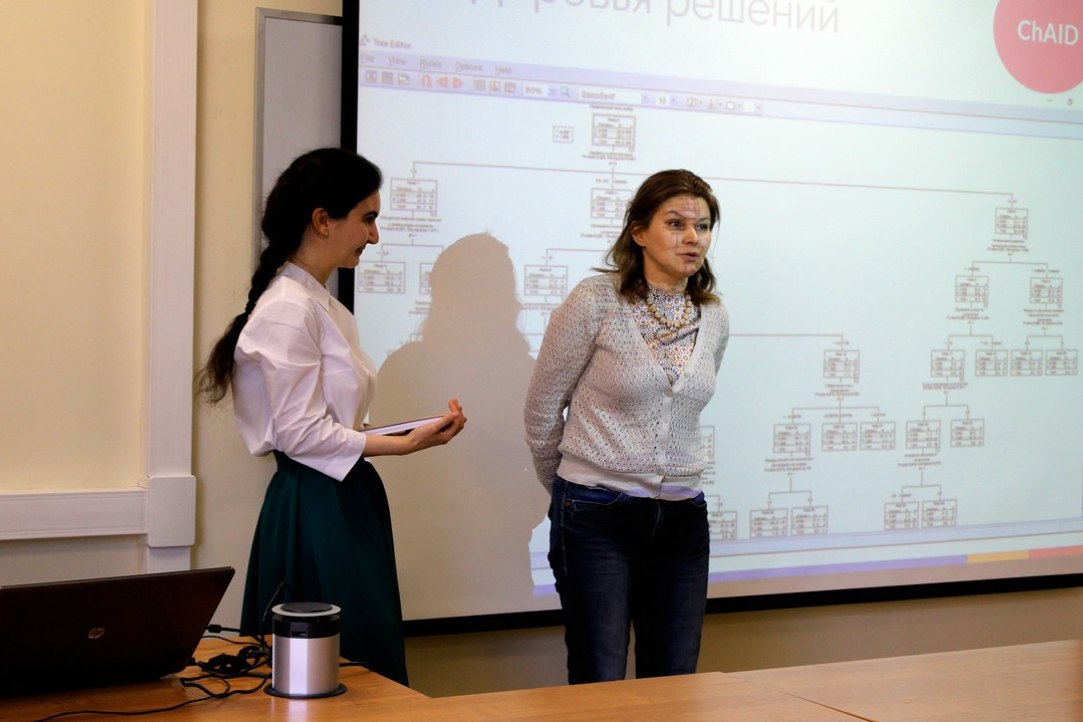Why schoolgirls do not choose STEM: searching for interaction effects in conditions of gender polarization
On the 20th of March Mkhitaryan Tamara introduced to members of the Research and Study Group (RSG) and other listeners results of applying the regression with interaction effects. Tamara`s report was based on her own database dedicated to the choice of STEM-disciplines by schoolchildren. After the report, Olga Savinskaya, Tamara`s scientific adviser, thanked her student for the active work on the topic and told listeners about the integration of research results into the work of the Department Social Protection of the population.

Within Tamara`s research, 700 questionnaires of schoolchildren of the 5th, 8th, 11th grades in Moscow and Gubkin-town were collected. The goal of the research was to identify determinants that prevent girls from choosing STEM-disciplines (Science, Technology, Engineering, Math) as a profile. Using this base, first, Tamara identified some of the interaction effects by applying the ChAID method. After that, by evaluating the strength of influence, checking fullness and selecting significant effects, a final regression model was constructed. Thus, by using a combination of different methods, Tamara managed to achieve an increase in prediction power of the model from 0.14 to 0.51.
Regression analysis showed that girls do not choose STEM-disciplines if they study in the socio-economic class, their parents do not help them with homework assignments in mathematics, educational process in their school can be classified as gender-oriented. On the contrary, girls tend to choose STEM-disciplines if they highly estimate their abilities in mathematics and think that mathematics is a "female" discipline.
After the report, Tamara thanked for the help the head of the RSG Alexey Rotmistrov, his Deputy Svetlana Zhuchkova, and scientific supervisor Olga Savinskaya. In reply, Olga Savinskaya told the audience how Tamara's study was integrated into extensive work on the study of gender polarization in technical fields. At the end of the speech, Olga gifted Tamara with a book published jointly with the Department of Social Protection of the population, which contains elements of Tamara`s research.
Abstract
